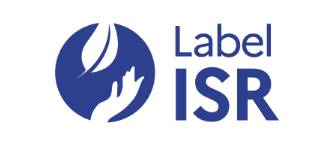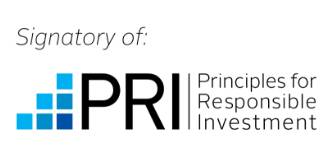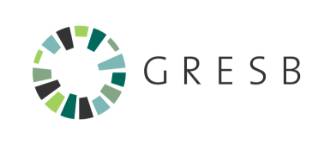Responsible Investing
Threestones is fully aware of the major inefficiencies dominating the global real estate market and adopts a "Best in Progress" investment strategy focused on:
- Aiming to improve the technical features of the properties in the portfolio via reduction of energy waste, greenhouse gas emissions, water usage and waste production
- Improving the number and quality of available care beds in targeted undersupplied micro locations across Europe
- Making sure the properties are in line with current safety, accessibility and fire protection regulations
The capital entrusted to us by our investors is the centre of what we do. We believe this should be allocated in a responsible manner with the goal of achieving environmental and social objectives, while delivering sustainable financial returns over time. As part of its investment strategy, Threestones aims to mitigate the negative externalities that buildings pose to the environment by improving the energy efficiency and resource consumption of its portfolio, whilst investing in existing real estate which generate immediate cash flow and ROI to investors.
External Validation
Threestones has signed up to different sustainability institutions and/or labels. The list below being current but not exhaustive:
- Threestones Capital Management (the AIFM) subscribed to UN Principles for Responsible Investing;
- The latest launched sub-fund "TSC Fund - Eurocare IV" reports under GRESB;
- TSC Fund - Eurocare IV" and "TSC Fund - Eurocare Real Estate" are classified as SFDR article 8.
- Threestones Capital has obtained the French SRI label (label ISR) for its sub-fund “TSC Fund – Eurocare IV”
 *applies to “TSC Fund – Eurocare IV”
*applies to “TSC Fund – Eurocare IV”
 *applies to “TSC Fund – Eurocare IV”
*applies to “TSC Fund – Eurocare IV”Team
Threestones has chosen to integrate ESG at the heart of its investment strategy with two sustainability resources.
The sustainability strategy is laid out within the "Sustainability Policy" and its implementation is overseen by the Sustainability Committee, which is composed by members of the Investment Team, the Head of Compliance, the Head of Risk and the Sustainability Manager.
The Sustainability Committee was created with members of different teams from the Threestones' organization, to structure Threestones' sustainability approach and style, covering topics such as evaluating the application for international labels (ISR Label...) and external validation groups (UN PRI, GRESB...), creating, implementing and updating the Sustainability Policy in compliance with the applicable European regulations, managing various workstreams with property managers, external consultants and operators, liaising with different entities providing ESG certifications etc.. The Sustainability Committee meets at least once a month. The role of this committee will evolve in the coming months, notably with the integration of additional participants such as employees from different subsidiaries, as well as architects and engineers who can provide technical knowledge during the establishment and review of the sustainability strategy.
SFDR Disclosures
Initial version - Publication date : 01.03.2021
Revised version - Publication date : 27.02.2023
This disclosure is made for the purposes of EU Regulation 2019/2088, known as the Sustainable Finance Disclosure Regulation or SFDR. It is made by Threestones Capital Management S.A. (Threestones or TSC), a société anonyme established in Luxembourg
Capitalised terms used but not defined herein shall have the meaning ascribed to them in the Sustainability Policy.
Disclosure for the purpose of Article 3 of SFDR – Sustainability Risks Integration
In accordance with Article 3 of SFDR, financial market participants shall publish information on their websites regarding their policies relating to the integration of sustainability risks into their investment decision-making process.
The objective of this Policy is to enhance transparency on how Threestones integrates relevant sustainability risks, significant or potentially significant, into its investment decision-making processes. The integration of such risks is based on the principle of double materiality:
- Sustainability risk: an environmental, social, or governance event or condition that, if it occurs, could cause an actual or a potential material negative impact on the value of an investment arising from an adverse sustainability impact;
- Principal adverse impact: impact that investments make on external sustainability factors (i.e., environment, social issues, respect for human rights, fight against corruption).
Identification and monitoring of sustainability risks
Threestones is aware that the investments made via its funds are exposed to sustainability risks that could have a material impact on the value of its underlying assets. Threestones believes that these risks deserve to be considered in the same way as traditional financial risks in order to provide a more complete picture of the value, risk and potential performance of such investments. Therefore, different teams within Threestones identify and analyse sustainability risks as defined in the Investment Policy, Risk Management Policy and other internal processes and procedures. As a real estate investor, Threestones has identified some sustainability risks applicable across all assets (whether residential or healthcare properties):
| ENVIRONMENT | SOCIAL | GOVERNANCE |
|---|---|---|
| Physical Climate Risks
Land Contamination Risk Water scarcity |
Failure to protect the end customer’s health and safety
Lack of accessibility for people with reduced mobility |
Fraud, corruption and money laundering risks |
1. Deal sourcing and investment decision
These sustainability risks may be considered asset by asset, depending on each investment’s context, at different stages leading to investment decision:
- Screening: when an asset is identified for potential acquisition, direct checks are performed by the investment team to identify possible material ESG issues that would rule out the investment by our pre-acquisition procedures such e.g. exposure of the asset to physical and regulatory risks, environmental footprint and tenant base.
- Due diligence: a thorough due diligence process is carried out to assess the quality of the property in its entirety, which considers the financial and non-financial returns, potential CapEx needed to make the asset better over time, including ESG features and other items. The potential long-term negative externalities from the environment and the regulatory framework in the specific micro location are also taken in consideration. In addition, Threestones has formalised an ESG Scorecard that was validated Q4 2022, which is used for all assets of EUROCARE IV, while it can be used optionally on the other funds. The ESG Scorecard gets its input based on information collected by the due diligence advisors and gives an overall ESG score to each asset before it is acquired. In the event that the asset scores below a minimum threshold established by Threestones, the decision to buy the asset is suspended. When the scoring is above the minimum threshold, an improvement plan is established to increase the scoring towards a target score selected for each asset.
2. Management of the asset
ESG performance indicators are monitored annually and are the subject to an annual collection of quantitative and qualitative information enabling Threestones to monitor the ESG performance of its investments over time. At the end of each fiscal year, the ESG Scorecard of each asset (mandatory for Eurocare IV and optional for the other funds) is updated based on the specific improvements, targeted CapEx implemented and/or other ESG achievement reached by the property throughout the year. The final goal of TSC is to increase the initial scoring to an acceptable level, ideally above 67.5, based on the starting point of each asset.
Capex plan: the ownership phase of a property is the central part of the value creation strategy of Threestones. Improvements are undertaken based on the idiosyncratic features of each property in order to increase its value and reduce its environmental footprint over the holding period. Examples of increasing value through responsible asset management could involve:
- Reducing operating costs through the installation of energy efficiency equipment;
- Minimising the number of the assets that could become stranded i.e., that would fail to meet more stringent carbon regulation in the future, by reducing the overall carbon footprint;
- Developing the properties to increase the number of available care beds, while using carbon-neutral processes and materials;
- Increasing rental income from properties by obtaining green building certifications such e.g., GRESB, LEED, BREEAM etc. as more and more tenants are willing to pay a premium for green-certified buildings and the overall building performance can be monitored and improved over time.
Engagement: building relationships and dialogues with the top-tier operators managing the properties is key to address ESG issues. Their behaviour directly affects the day-to-day operations of the assets in matter of energy consumption, recycling and elderly well-being. Threestones will also try to gather the view of its operators on what they consider as material ESG issues to improve the understanding of the areas of intervention to better align the interests of all stakeholders on a long-term perspective.
3. Sale of the asset
A proper management of the asset through time leads to better financial and non-financial returns, via a reduction of risk and an increased value to Threestones’ stakeholders in addition to the elderly occupying the property. TSC will highlight to potential buyers the environmental, social and governance targets achieved during the holding period.
Disclosure for the purpose of Article 4 of SFDR – Information on Principal adverse impacts
Threestones seeks to manage the principal adverse impacts (“PAI(s)”) of its investments on sustainability factors.
The objective of this disclosure is to enhance transparency on how Threestones integrates relevant PAIs, significant or potentially significant, into its investment decision-making processes. The integration is based on the principle of double materiality, as listed above.
Description of key negative impacts of investment decisions on sustainability factors
In line with the SFDR, Threestones considers the PAI of its real estate investments to be related to the energy consumption of its assets and associated carbon emissions. For Article 8 real estate funds (i.e., Eurocare Real Estate Fund and Eurocare IV), TSC undertakes to monitor at a minimum the following indicators:
- Exposure to energy-inefficient real estate assets
- Exposure to fossil fuels through real estate assets
- GHG emissions
- Energy consumption intensity
Description of processes to identify and prioritize key negative impacts of investment decisions on sustainability factors
Threestones has formalised an ESG Scorecard that was validated Q4 2022 and is used for EUROCARE IV: non-financial criteria covering the E, S and G pillars of sustainability are integrated into the investment processes via the ESG Scorecard, which has the goal of identifying potential PAIs on the target investment, plan mitigation actions to PAIs and monitor them throughout the holding period of Threestones.
The ESG Scorecard is mandatorily applicable to all assets owned by Eurocare IV, while it can be used at will on future acquisitions of the other real estate sub-funds. Specific amendments and non-financial metrics will be inserted in a new template of the ESG Scorecard to be applied to the Private Equity sub-fund.
Threestones identifies PAIs since the initial deal sourcing and investment decision, monitors PAIs throughout the holding period and until the sale of the assets. More details on each phase are given above.
References to international standards
Threestones conducts its business according to the international highest standards and is a member of the Principles for Responsible Investment (“UN PRI” or “PRI”).
As a real estate fund manager, TSC is also a member of industry sustainability initiative such as the Global Real Estate Sustainability Benchmark (“GRESB”), that provides actionable and transparent ESG data on portfolio of properties to financial markets participants.
TSC reports every year through these initiatives and receives an annual score on the compliance to the processes stated above.
Disclosure for the purpose of Article 5 of SFDR – Integration of sustainability risks in the remuneration policy
Threestones’ remuneration practices are designed to promote sound and effective risk management and not to encourage short-term risk-taking approaches, which is inconsistent with its risk appetite or the risk profile of the portfolios which Threestones manages. Threestones’ Sustainability Policy sets out how its investment process incorporates consideration of Environmental, Social and Governance risks. Such risks form part of TSC’s assessment of risk for the purposes of its remuneration policy. Threestones’ approach to remuneration enables a fixed remuneration margin, with the addition of a variable remuneration for employees that is adjusted based on annual performance of TSC as a group. This adjustment is not based solely on financial metrics but also qualitative, non-financial metrics, form a significant part of the annual assessment process which is carried out by each employee with their respective supervisors. Qualitative metrics may include, for example, an employee’s failure to comply with applicable regulatory rules, unethical behaviour or other behaviour that is contrary to Threestones’ culture and values. Consideration of these factors (including, where relevant, an individual’s contribution to ESG-related efforts) may form part of the employee’s performance assessment process.
Consideration of principal adverse sustainability impacts
The following link includes Threestones Capital's latest PAI statement report.
Article 8 Website Disclosure (product-level)
TSC Fund SCA SICAV-SIF - Eurocare Real Estate Fund and TSC Fund SCA SICAV-SIF - Eurocare IV promote environmental and social characteristics as defined in Article 8 of EU 2019/2022 Regulation on Sustainable Related Disclosures in the financial services sector (Sustainable Finance Disclosure Regulation or "SFDR"). More information on the environmental and social characteristics promoted by both funds can be found in the following links.
